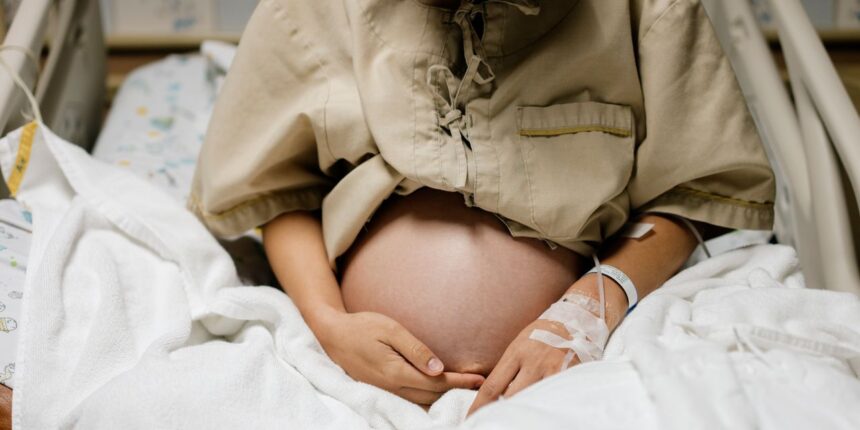Throughout the last year, Hailey Okula, known as “Nurse Hailey” on Instagram, kept fans posted on her infertility journey and excitement while getting ready to welcome her first child with her husband, firefighter Matthew Okula. But instead of sharing happy news when their son was born last week, Matthew posted a shocking message on his 33-year-old wife’s Instagram page: Hailey died due to complications from childbirth.
“Hailey was more than I could have ever dreamed of in a wife and partner,” Matthew wrote. “She was gorgeous, smart, hardworking, passionate, trustworthy, and above all else, unbelievably loyal.”
“Words can’t describe how badly we wanted to be parents,” he continued. “After years of infertility struggles and a long, challenging IVF process, we were overjoyed to be expecting Crew.” Matthew also remembered a sweet moment that the couple went through, where he apologized for the toll IVF would take on Hailey and she responded with, “We are a team, and we’ll get through this together.”
“That was Hailey. A fighter. A teammate. A woman who would do anything for the people she loved,” he wrote.
Matthew later told Fox News 11 that his wife suffered cardiac arrest from amniotic fluid embolism just minutes after giving birth to the couple’s son, Crew, via C-section. “She was able to see him for a split second, and I’m always going to remember that,” Matthew said.
SELF reached out to a representative for Matthew, but did not hear back before the time of publication.
Matthew has since shared two Instagram Story posts from the Amniotic Fluid Embolism Foundation, raising a lot of questions about what this childbirth complication is and any potential warning signs expectant parents need to be aware of. Here’s what ob-gyns want you to know.
Amniotic fluid embolism is an incredibly rare and serious complication of childbirth.
Amniotic fluid embolism is a rare and life-threatening complication that can happen during delivery or soon after giving birth, according to the Cleveland Clinic. The condition happens when amniotic fluid, the liquid that surrounds the fetus during pregnancy, enters the mother’s bloodstream right before, during, or after childbirth. In some people, this can spark a severe—and potentially deadly—allergic reaction.
This allergic response usually causes a heart attack, although it can also lead to lung failure and severe bleeding. “This is an obstetrical emergency,” Christine Greves, MD, an ob-gyn at the Winnie Palmer Hospital for Women and Babies in Orlando, tells SELF. “It’s terrifying because a lot can happen in a very short period of time.”
Again, this condition is very rare. A 2022 JAMA analysis of data from 14.6 million people who had a baby between 2016 and 2019 found that amniotic fluid embolism happened in six out of 100,000 deliveries. But the researchers determined that the mortality rate of amniotic fluid embolism was as high as 46% in some cases, particularly when there was a co-occurring health issue or problem with the placenta.
There are a handful of amniotic fluid embolism risk factors to keep in mind.
Dr. Greves says that amniotic fluid embolism is an unpredictable childbirth complication. “We don’t know who will have it and when,” she says. However, research has found there are some factors that may raise your already low risk of experiencing it, including:
Read the full article here



